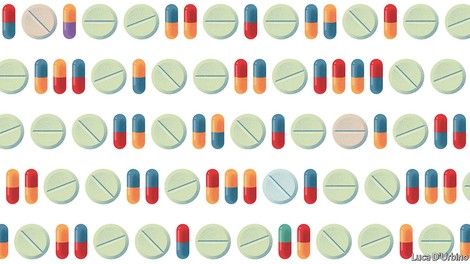Your podcast discovery platform
Curious minds select the most fascinating podcasts from around the world. Discover hand-piqd audio recommendations on your favorite topics.

piqer for: Global finds Health and Sanity Doing Good
Bangalore-based Rashmi Vasudeva's journalism has appeared in many Indian and international publications over the past decade. A features writer with over nine years of experience heading a health and fitness supplement in a mainstream Indian newspaper, her niche areas include health, wellness, fitness, food, nutrition and Indian classical Arts.
Her articles have appeared in various publications including Mint-Wall Street Journal, The Hindu, Deccan Herald (mainstream South Indian newspaper), Smart Life (Health magazine from the Malayala Manorama Group of publications), YourStory (India's media technology platform for entrepreneurs), Avantika (a noir arts and theatre magazine), ZDF (a German public broadcasting company) and others.
In 2006, she was awarded the British Print-Chevening scholarship to pursue a short-term course in new-age journalism at the University of Westminster, U.K. With a double Masters in Globalisation and Media Studies from Aarhus Universitet (Denmark), University of Amsterdam and Swansea University in Wales, U.K., she has also dabbled in academics, travel writing and socio-cultural studies. Mother to a frisky toddler, she hums 'wheels on the bus' while working and keeps a beady eye on the aforementioned toddler's antics.
Big Data In Healthcare: The Future Is Here But Are The Risks Too?
This story has long been due. The big data storm has been gathering in healthcare the whole of last year. In fact, Wired carried this article last April that spoke of how Google’s ambitious health project might do wonders for universal healthcare but might not be as marvelous as all that when it comes to privacy. Not just Google, healthcare is seeing large investments from all the biggies – Facebook, Apple and Amazon – indicating a revolution, no less, in how big data and new technologies such as AI, VR and CRISPR are applied to medicine.
This piece in the Economist is like a primer for what it means to employ big data, the ethical and practical dilemmas it might result in, and of course, the exciting medical discoveries it might lead scientists to.
Traditionally, the main problems with healthcare the world over are access and lack of knowledge. But access to data is already shifting the ground beneath. Smartphones are allowing people to monitor their own health more closely; internet allows for online consultations as well as over-the-counter tests. Add to this access to data and the ability to share that data with professionals, and on paper at least it means a rapid decline in ineffectual treatments and a better targeted, focused care for ourselves and everyone else.
The benefits are not restricted to improving efficiency and a more co-ordinated care. The aggregation of data can help AI (as it is already doing) identify anything from behavioural traits to cancerous tissues to risks of cardiac disease. Can you imagine the world this has the potential to open up?
Big data though does not come without its share of risks. Threats of hacking, data misuse and security breaches might heighten; and there is real danger of the benefits flowing only towards the rich. But will the benefits outweigh the risks? Only time can tell.
